Why Bartacking?
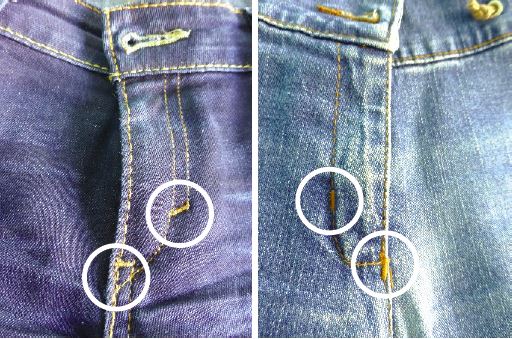
An internal or external bartack must be used to protect the zip from damage caused during special garment processes. The bartacks also protect the zips if the wearer accidentally steps on the garment.
Normally an external bartack is applied horizontally on denim jeans and casual trousers, though vertical bartacks can offer similar protection if positioned correctly.
It is important that the bottom of the fly is secured to protect the bottom stop of the zip from damage during the zip’s opening and closure.
Advice
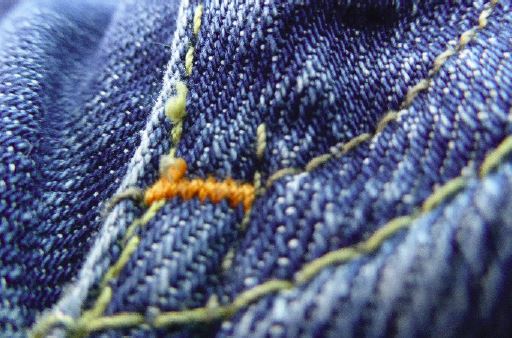
The bartacks prevent damage during the industrial wash (enzyme or stone or bleach washing) process, where loading / forces can be more than 100 times of a domestic washing process or the anticipated loads exerted during the normal wear of the garment.
Wherever a washdown process is used, especially one including stones or other medium, we strongly recommends that pilot trials are undertaken prior to bulk production.
The zip should always be closed to the top prior to any washing.
Bartack Position
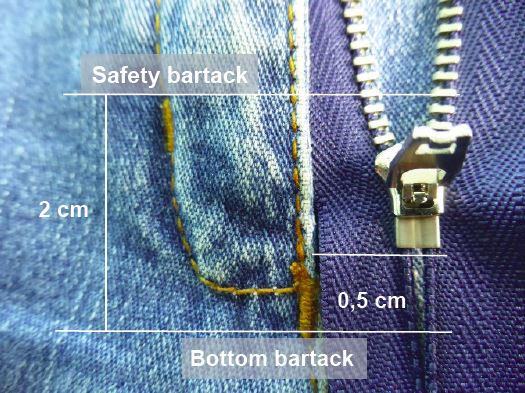
- Correct positioning of the bartacks will ensure that the slider, bottom stop and teeth are protected from the effects of harsh industrial laundering should the slider move during washing.
- The distance from bottom stop to bottom bartack should be equal to or less than 0.5 cm.
- The distance from the bottom bartack to safety bartack on the J-stitch should be a minimum of 2 cm ensuring the safety bartack is always placed above the slider head when the zip is fully open.
Internal and Bottom Bartack
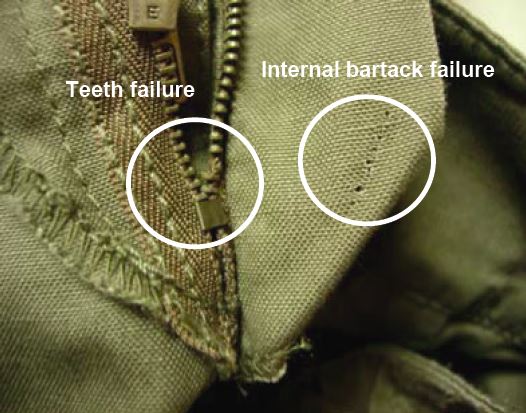
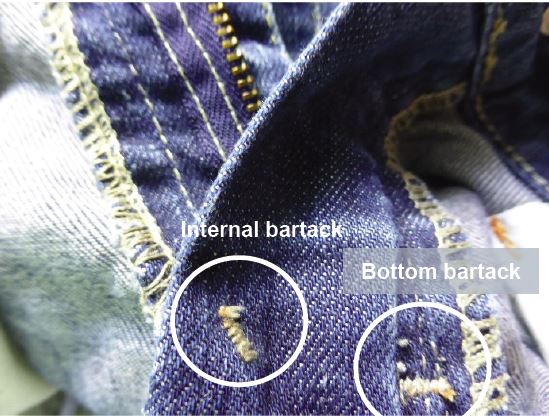
A correctly constructed bartack normally offers 3-4 times higher protection strength than the zip teeth and bottom stop. Single or double lines of stitching do not offer sufficient protection and can break easily during washing or the wearer’s use damaging the zip components.
Safety Bartack
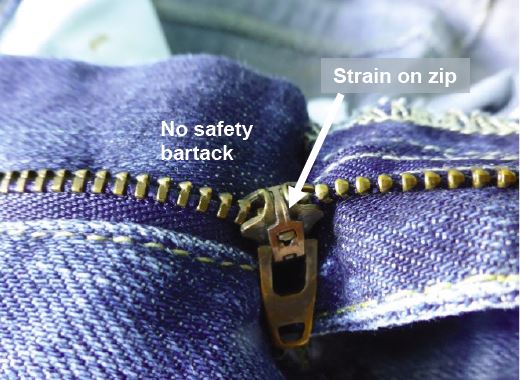
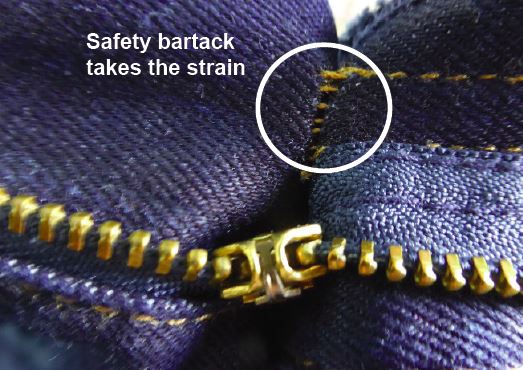
The safety bartack takes the load applied during wearing of the garment, thereby preventing damage to the zip slider, teeth and bottom stop.